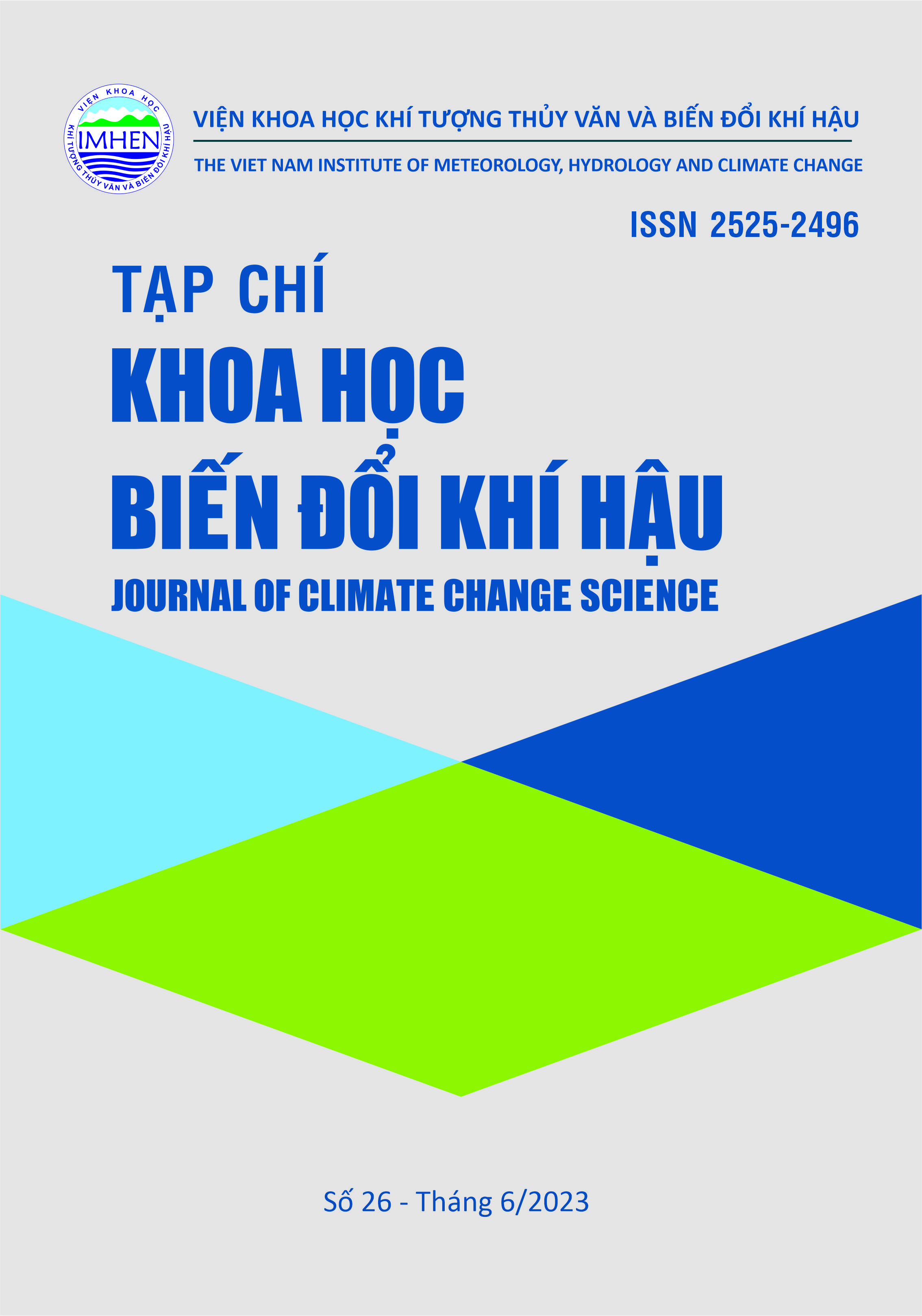ASSESSMENT OF LIVELIHOOD VULNERABILITY INDEX ON CLIMATE CHANGE IN VINH CUU DISTRICT, DONG NAI PROVINCE
Abstract
Livelihood Vulnerability is an indicator commonly applied to assess the impact of climate change factors on the livelihoods of communities. The study used the LVI and LVI-IPCC Indexes to assess livelihood vulnerability in Vinh Cuu district, Dong Nai province. Through the collection of data from 400 households in the study area along with secondary disaster data, the LVI and LVI-IPCC indexes were calculated according to the method of Hahn et al. (2009). The experimental results show that the livelihood vulnerability index in 12 communes/towns of Vinh Cuu district has no difference, of which Binh Loi commune is the most vulnerable in the whole community (0.346) and Hieu Liem commune is the least susceptible (0.211). The LVI and LVI-IPCC indexes of the whole district are 0.34 and -0.024, respectively, at the medium level of livelihood vulnerability, with the components having the highest vulnerability in the order of Livelihood Strategy (0.561), followed by Health (0.334), Demographic characteristics (0.288), Food and finance (0.251), Natural disasters and climate change (0.244), Water resources (0.237) and the lowest is Social Network (0.178). The research is expected to be a reference to provide information for managers and communities to proactively adapt, develop policies and strategies to support and reduce damage caused by natural disasters.

